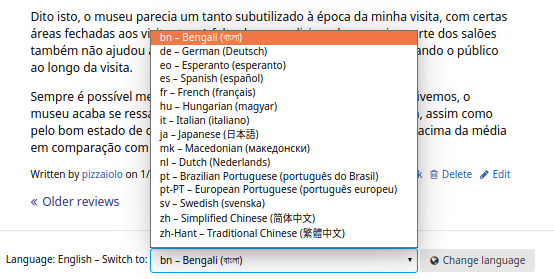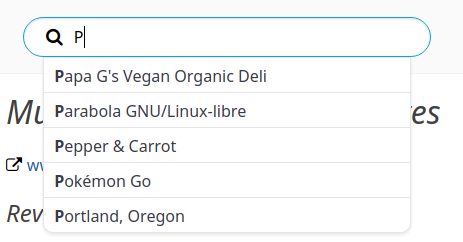The language list was starting to get cluttered (thanks to translators!), so we’re now using a dropdown, which should make things more manageable for some time to come.

If you frequently change languages, two tips:
- You can access the dropdown with the access key “L”, e.g., “Alt+L” in Chromium.
- By typing the language code inside the dropdown, you can quickly select your favorite language, no matter what language the user interface is currently in.
(Note that this change adds a new interface text for the language button, which will take a little while to get translated into all the supported languages.)


